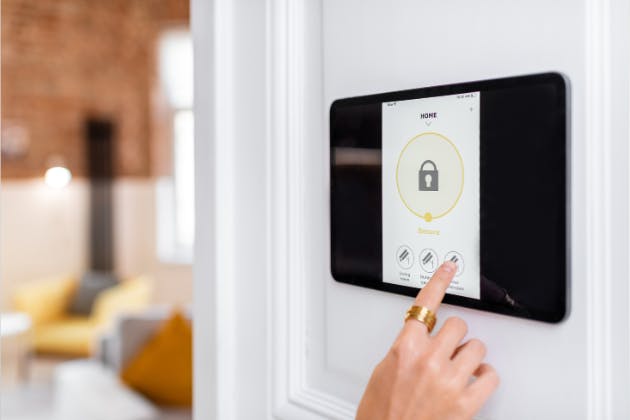Home security systems are designed to protect your property using a combination of sensors, alerts, and real-time monitoring. Whether you're upgrading your current setup or installing one for the first time, deciding between a wired or wireless system can be challenging. Each type comes with distinct advantages, so understanding how they work and what suits your home is key to making the right choice.

Understanding the Differences of Wired and Wireless Systems
All home security systems follow a similar principle: detect, respond, and alert. Sensors placed at key locations feed data to a central control panel, which triggers alarms or notifications if something unusual is detected. Notification systems can include sirens, mobile alerts, or connections to a monitoring centre.
The key distinction is in how these components communicate. Wired systems rely on physical cabling, while wireless ones use radio frequency signals.
Key Features of Wired Systems
Wired alarm systems use cables routed through walls or under floors to maintain constant communication between components.
Advantages
- Reliable signal with minimal interference
- Operates independently of internet service
- Harder to access remotely or tamper with
- Can store security footage locally
Considerations
- More complex and invasive to install
- Usually requires a professional
- Higher upfront costs due to labour and materials
Key Features of Wireless Systems
Wireless systems use encrypted radio signals to connect components, making them much easier to install and modify.
Advantages
- Quick, non-invasive installation
- Lower initial cost
- Easily moved or expanded
- Works well in homes where wiring is impractical
Considerations
- Can suffer from signal interference
- Often relies on internet for alerts and monitoring
- May include monthly cloud storage fees
- Increased risk of remote hacking if not well protected
Choosing Based on Property Needs
When selecting a system, think about your home's structure, internet reliability, and how much disruption you're willing to accept during installation. For example:
- Thick walls or listed buildings may favour wireless systems
- A strong internet connection is essential for cloud-based alerts
- Wired systems may offer long-term savings if you plan to stay in your home
FAQs
Secure Your Home in Hemel Hempstead Today
We help homeowners across Hemel Hempstead choose the right alarm system with professional advice and installation. Call 01442383169 or fill out our contact form to book a consultation and protect your property with confidence.
